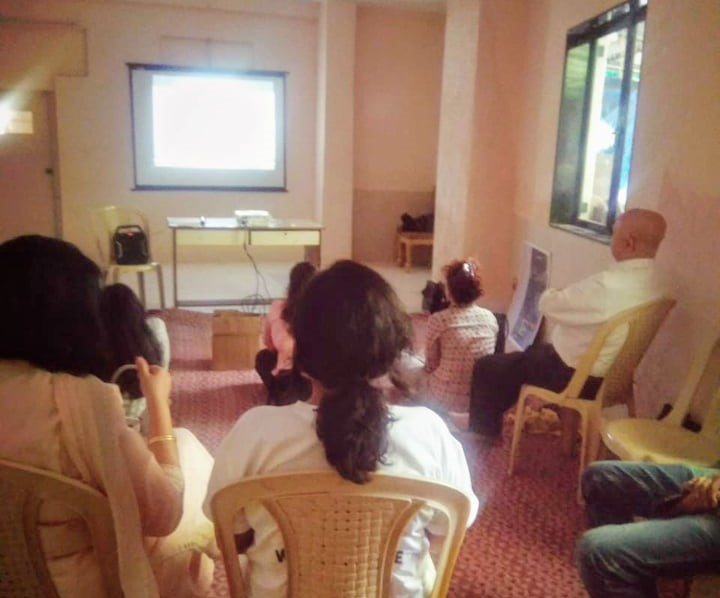By Olivia Bridge
In the midst of a global pandemic set to the backdrop of Brexit, ending violence against women and girls (VAWG) appears to have slipped down the United Kingdom (U.K.) Government’s priority list. Yet, as campaigners and charities are acutely aware, abuse thrives in silence behind closed doors – and women and girls disproportionately pay the price.
One form of abuse that charities fear is on the rise is female genital cutting (FGC), a practice which has affected more than 200 million women and girls worldwide, with a further 68 million more estimated to be at risk in the next ten years. It is said that every seven seconds, a girl somewhere around the world faces the potentially agonizing pain and trauma of being cut.
What is FGC?
The World Health Organisation defines FGC as a procedure which involves the “partial or total removal or the external female genitalia or other injury to the female genital organs for non-medical reasons.” There are four types of FGC that vary in severity, but all types are recognised as child abuse and a violation of women’s and girls’ human rights. In some cases, anaesthetics and antiseptics aren’t used, meaning not only is the initial cutting procedure traumatic, potentially life-threatening and painful, but survivors are at increased risk of blood infections, hemorrhaging and infection throughout their lives, and can face issues with urination, menstruation, pregnancy and penetration.
Communities who practice FGC claim it is linked to tradition, faith and ideas around gender roles, insisting girls must preserve their virginity. Many families believe FGC to be a rite of passage for their daughters, and in some communities, it can go hand-in-hand with other practices, such as breast ironing and forced marriage.
FGC is a global issue involving at least 92 counties, including the U.K. Despite landmark legislation making those facilitating the practice to be punishable for up to 14 years in prison, girls born to families of these regions in the U.K. are at a heightened risk of being taken abroad under the false pretense of a special ceremony.
How prevalent is FGC in the U.K.?
In the mere five years that the U.K. has been recording data, 24,420 women and girls have been identified by the National Health Service (NHS) as having undergone FGC, with 6,590 being treated in the year up until March of 2020 alone. 205 victims or survivors were U.K.-born.
In total, it is estimated 137,000 women and girls are living with its effects in England and Wales. But many believe the official figure to be the tip of the iceberg considering most survivors (80%) go undetected until they come into contact with midwives or obstetric services. But some women may never come into contact with the NHS at all, including women who don’t have Indefinite Leave to Remain or any form of secure immigration status, in part, either because they are unaware of the support available, or they fear immigration enforcement.
What is the COVID-19 impact?
However, the COVID-19 pandemic appears to have ramped the practice around the globe. A policy briefing by the Orchid Project in September illuminates the extent, noting, “COVID-19 related lockdowns are being seen as an opportunity to carry out FGC undetected,” across East and West Africa; and “economic hardship is driving increased rates of FGC because of parents seeking ‘bride prices.’”
Other research conducted by UNFPA anticipates that as a result of coronavirus disruptions to FGC prevention programmes, as many as two million more cases could take place in the next ten years that would otherwise have been avoided. As such, it estimates a one-third reduction in the progress toward achieving the Sustainable Development Goal of eradicating the practice by 2030.
Campaigners attribute the rise to mass school closures, a decrease in access to support and health information, and the economic situation forcing girls into marriage for families to secure a dowry. Indeed, as joint research points to prove, whenever girls are stifled from education, they become increasingly more vulnerable to abusive practices.
For this reason, campaigners fear the true scale of gender-based violence is yet to be realised as the U.K. creeps in and out of lockdown and restrictive measures are tweaked every few weeks. Kate Agha, the Chief Executive of Oxford Against Cutting, said, “With the rise in harmful traditions overseas, practicing-communities in the U.K. will come under increased pressure from family abroad to ensure they are part of the group and upholding cultural traditions based on honour.”
What is the UK doing about it?
The U.K. has remained determined to end FGC, setting a deadline to prevent it from occurring for good by 2030, in line with many other countries.
Progress has been commendable. FGC has been outlawed in several Western countries including the U.K., Canada, Spain and New Zealand, among others, including 19 African countries. To date, the U.K. remains the largest donor to support the end of FGC globally, helping 10,000 African communities and assisting six African nations with a budget and new laws to criminalize it.
However, amid these trying times, progress seems to be stalling and commitment stuttering behind if the U.K. is to realistically facilitate the end of FGC in the next ten years. For instance, despite being against the law for thirty-five years and a whole host of civil protections and laws being introduced in 2003, there has only been one successful prosecution, which took place in February of 2019. Meanwhile, charities claim social workers and even healthcare practitioners aren’t always trained and equipped to safeguard and handle victims or survivors with there being greater emphasis on support post-procedure than preventing it from happening in the first place. Due to a shocking knowledge gap in Lancashire hospices that emerged in August, medics are now receiving extra training. But how many more remain ill-equipped?
Many believe the U.K. is silently withdrawing from its commitment altogether as it emerges that the Home Office has slashed funding from The National FGM Centre which, since its inception in 2015, has safeguarded 742 girls and supported 341 survivors. The centre reserves the power to issue protection orders for girls at risk, instruct the police on when to intervene and has trained at least 18,000 professionals, including teachers, social workers, police officers, lawyers and doctors. Yet this year, the centre will receive a mere £432,000 in funding – a drop in the ocean compared to the £2.7 million it was awarded five years ago. The Home Secretary is in the midst of attempting to deport an 11-year-old girl to her native country, Sudan, where she is sure to undergo FGC, in a move which lawyers claim mocks domestic FGC laws and protection orders. Fortunately, the girl was spared deportation in the eleventh hour by an FGC protection order, but her future remains uncertain.
As the futures of girls around the world hang on a thread and women become the collateral damage to COVID-19, the government must ensure it does not bulldoze over years of ground-breaking progress toward ending FGC. Without serious, unwavering commitment to ending the practice, women and girls will continue to be violated and stripped of their basic human rights.(Olivia Bridge writes for Immigration News and the Immigration Advice Service.)








